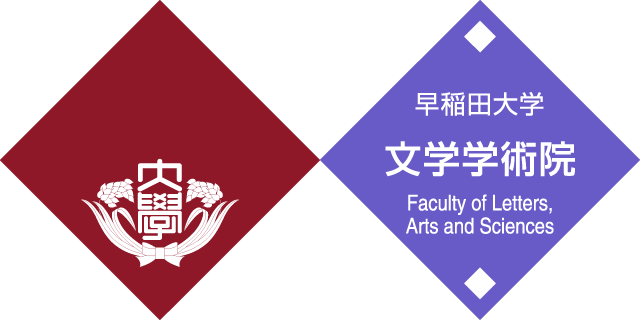- News
- Event Report: WIAS Seminar Series “Humanities in the Anthropocene” Vol. 3, Open Lecture – Mountains in the Anthropocene: Considering the Historical Research on the Mountainous Regions of Central Asia
Event Report: WIAS Seminar Series “Humanities in the Anthropocene” Vol. 3, Open Lecture – Mountains in the Anthropocene: Considering the Historical Research on the Mountainous Regions of Central Asia

- Posted
- Wed, 20 Apr 2022
This lecture was organized as the third open lecture in the seminar series “Humanities in the Anthropocene,” a research project of the Waseda Institute for Advanced Study, with 30 participants from Japan and abroad, followed by a lively discussion. The speaker, Tetsu Akiyama, specializes in the modern and contemporary history of Central Asia, with a particular focus on the nomadic peoples of Kyrgyzstan based in the Tien Shan Mountains.
Before Covid-19, he used to go to the Tien Shan Mountains every year for fieldwork. The beautiful mountain landscapes he photographed there on the screen were a sight to behold. In the lecture, he made a large-scaled argument to reexamine the modern history of Central Asia from a new perspective of the “Anthropocene,” opening up the possibility of a new historical description that takes environmental factors into account. Discussions evolved into issues of economy, faith, and national identity surrounding the mountains, as well as the relativization of the modern state from the perspective of nomadism.
The discussion also included the reality of Russian expansion and conquest of the Tien Shan Mountains region since the mid-19th century, the reality of Kyrgyzstan’s occasional cooperation and defiance of Russia, and the reality of Russian settlers being conversely Kyrgyzized (adapting to mountain life). The lecture brought a new perspective to modern history by focusing on the process of conflict and reconciliation.


In the Q&A session after the lecture, Tetsuro Chiba (Associate Professor, Department of World Symbiosis, Nagoya University of Foreign Studies) was invited as a discussant. He suggested that by looking at mountainous areas from the perspective of “Anthropocene” history, it would be possible to (1) find traces of human activity etched in the “geology” of mountainous areas and (2) find what has changed, what has been forced to change, and what has not changed through the conquest, annexation, and colonization by the peoples of the plains.
The topic also turned to the recent Russian invasion of Ukraine, where there was a discussion of the historical sense on the Russian side “Ukraine is part of Russia” and the overlap with the history of Russian domination of Kyrgyzstan. This provided an opportunity to reconsider the importance of historical perspectives in solving issues to address in today’s society. In the discussion part, there were also questions from participants specializing in Central Asian history and geography, including Minoru Inaba, (Professor, Kyoto University), Takuya Soma, (Associate Professor, Kyoto University), and Masatomo Kawamoto, (Professor, Nara University). The meaningful discussion went on well beyond the scheduled time.

Event Details
Date/Time: March 7, 2022 (Mon.), starts at 10:00 (JST)
Location: Online meeting via Zoom
Speaker: Tetsu Akiyama (Associate Professor, WIAS)
- Links
-
WIAS Seminar Series “Humanities in the Anthropocene” Vol. 3
Open Lecture – Mountains in the Anthropocene: Considering the Historical Research on the Mountainous Regions of Central Asia (Mar. 7) - Event report: WIAS Seminar Series “Humanities in the Anthropocene” Vol. 2 Open Lecture – The Basics of Traditional Japanese Painting: Techniques, Materials and Reception (Feb. 5)
- Event report: WIAS Seminar Series “Humanities in the Anthropocene” Vol. 2, Open Lecture – The Basics of Traditional Japanese Painting: Techniques, Materials and Reception
- Event report “Humanities in the Anthropocene” Part 1 Open Lecture – The History of the Earth: A Circular System of Water, Soil and Human Beings
-
WIAS Seminar Series “Humanities in the Anthropocene” Vol. 1
Open Lecture – History of the Earth: A Circular System of Water, Soil and Human Beings (Dec. 4)
- Tags
- Event Reports
